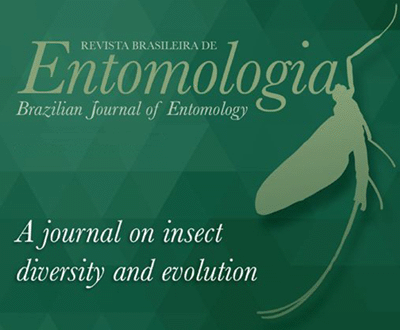The biology of Trichogramma pretiosum Riley (Hymenoptera, Trichogrammatidae) "strain bonagota" reared in eggs of Bonagota salubricola (Meyrick) (Lepidoptera, Tortricidae) was studied in laboratory estimating the thermal requirements and the number of annual generations in some apple production regions of the Rio Grande do Sul and Santa Catarina States. Eggs of B. salubricola were submitted to parasitism by T. pretiosum for 24h, and transferred to incubators regulated to 18, 20, 22, 25, 28, 30 and 32ºC. The duration of the biological cycle (egg-adult) was influenced by temperature ranging from 8.18 to 18.12 days at 32 and 18°C, respectively. The parasitoid emergency was higher (66.2%) at 22°C. The sex ratio of T. pretiosum ranged from 0.61 to 0.72 being not influenced by temperature. The highest relation of parasitoids/egg was found at 30°C (1.41). The thermal constant (k) and the threshold temperature (Tb) was 187.7 degrees days and 7.42ºC, respectively. The number of annual generations estimated for T. pretiosum for Fraiburgo and São Joaquim, SC and Vacaria, RS was 17.5; 11.6 and 16.8, respectively.
Biological control; Brazilian apple leafroller; egg parasitoids



